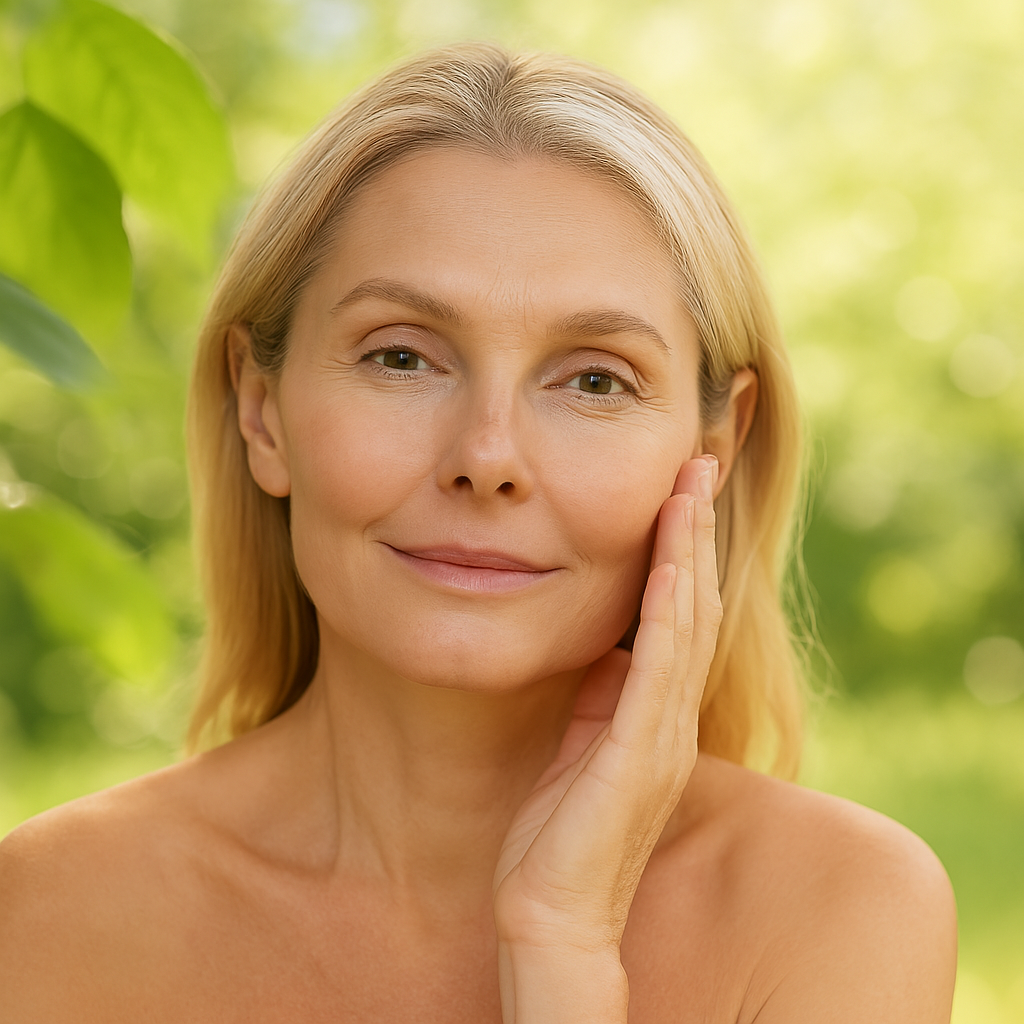
As we age, the mirror often reflects changes that whisper (or shout) the passage of time. Among the most noticeable shifts is the loss of skin elasticity—a direct result of declining collagen, environmental damage, and lifestyle choices. But emerging research reveals that skin elasticity and aging aren’t a one-way street. By understanding the science and adopting targeted strategies, you can reclaim firmer, smoother skin. Let’s dive into the causes, solutions, and science-backed methods to turn back the clock.
Skin Elasticity and Aging: Understanding the Biological Connection
What Makes Skin Elastic?
Skin elasticity relies on two critical proteins: collagen (which provides structure) and elastin (which allows skin to “snap back”). Together, they form a supportive matrix in the dermis, keeping skin plump and resilient. However, after age 25, collagen production declines by 1% yearly (Allied Academies), while elastin fibers fray. This gradual breakdown leads to thinning skin, sagging, and wrinkles—hallmarks of skin elasticity and aging.
The Role of Hormones
Hormonal shifts, particularly during menopause, accelerate collagen loss. Estrogen, which stimulates collagen synthesis, drops sharply post-menopause, leading to up to 30% collagen reduction within five years (NIH Study). This explains why many women notice sudden changes in skin texture and firmness in their 50s.
Skin Elasticity and Aging: External Accelerators
While biology sets the stage, external factors speed up the process:
1. Sun Damage (Photoaging)
UV rays penetrate the dermis, fragmenting collagen and elastin through oxidative stress. UVA rays ( 95% of UV exposure) degrade collagen, while UVB rays damage the skin’s surface. Over time, this causes solar elastosis—a buildup of abnormal elastin that creates a leathery texture and deep wrinkles (DERMNET).
2. Lifestyle Choices
- Smoking: Nicotine narrows blood vessels, starving skin of oxygen and nutrients. It also increases MMP enzymes that destroy collagen (Journal of Dermatological Science).
- Sugar: Excess glucose binds to collagen via glycation, forming stiff, brittle fibers that worsen sagging.
- Dehydration: The skin’s outermost layer (stratum corneum) loses moisture, making wrinkles appear more pronounced.
Skin Elasticity and Aging: Top Science-Backed Supplements
1. Hydrolyzed Marine Collagen
Marine collagen, sourced from fish, has smaller peptides that absorb 1.5x faster than bovine collagen. A 2021 study found that participants taking 10g daily of marine collagen saw a 28% improvement in skin elasticity after 12 weeks (Study Link). Brands like Vital Proteins offer tasteless powders that can be easily added to coffee or smoothies.
2. Hyaluronic Acid
This moisture-binding molecule holds 1,000x its weight in water, plumping skin from within. Oral supplements (like Neocell) paired with topical serums maximize hydration, smoothing fine lines (PubMed).
3. Vitamin C + Zinc
Vitamin C fuels collagen synthesis and neutralizes free radicals from UV exposure. Zinc supports wound healing and reduces inflammation. A combo supplement, such as Nature’s Bounty, ensures optimal skin repair.
4. Omega-3 Fatty Acids
Found in fish oil and algae, omega-3s strengthen the skin barrier, locking in moisture. A 2018 review linked daily omega-3 intake to reduced dryness and improved elasticity (NIH Review).
5 Lifestyle Strategies for Youthful Skin
1. Apply SPF 30+ Daily (Rain or Shine)
UV protection is non-negotiable. Opt for broad-spectrum sunscreens with zinc oxide or titanium dioxide. Reapply every 2 hours outdoors. EltaMD UV Clear is a dermatologist favorite for sensitive skin.
2. Eat Collagen-Boosting Foods
Incorporate:
- Bone broth: Rich in glycine and proline, the building blocks of collagen.
- Citrus fruits: Vitamin C in oranges and kiwis enhances collagen production.
- Soy products: Genistein in soy may block collagen-destroying enzymes (NIH Study).
3. Stay Hydrated
Aim for 8–10 glasses of water daily. Herbal teas and water-rich foods (cucumbers and watermelon) count toward your intake.
4. Avoid Smoking and Excess Sugar
Swap sweets for antioxidant-rich berries, and try nicotine patches or apps like QuitNow! to curb smoking.
5. Use Retinol Nightly
Retinol (vitamin A) accelerates cell turnover and collagen synthesis. Start with a low dose (0.25%) to avoid irritation. Paula’s Choice 1% Retinol is ideal for beginners.
Professional Treatments Worth Considering
For those seeking faster results, medical interventions can complement supplements and skincare:
- Microneedling: Tiny needles create micro-injuries, triggering collagen production.
- Laser Resurfacing: Fractional lasers (like Fraxel) remove damaged skin layers, revealing tighter tissue.
- Ultherapy: Ultrasound energy stimulates collagen deep within the dermis.
Consult a board-certified dermatologist to tailor treatments to your needs.
Skin Elasticity and Aging: FAQs
Q: Can you regain lost elasticity?
A: Yes! Studies show that collagen supplements, retinoids, and sun protection can improve firmness by up to 20% in 6 months.
Q: How long do collagen supplements take to work?
A: Most users notice changes in 8–12 weeks, with optimal results after 6 months.
Q: Does exercise help skin elasticity?
A: Yes—increased blood flow delivers nutrients to skin cells. Yoga and facial exercises may also tone facial muscles.
Skin Elasticity and Aging: Final Thoughts
While skin elasticity and aging are inevitable, their progression is within your control. A dual approach—internal supplements (marine collagen, vitamin C) and external protection (SPF, retinol)—can rebuild collagen, combat wrinkles, and restore confidence. Start with small changes today, and your future self will thank you.
Ready to Begin? Explore our guides to (Anti-Aging Skincare Secrets) and (Elderly Skincare: Simple Tips for Healthy Aging Skin) for actionable tips to explore.
